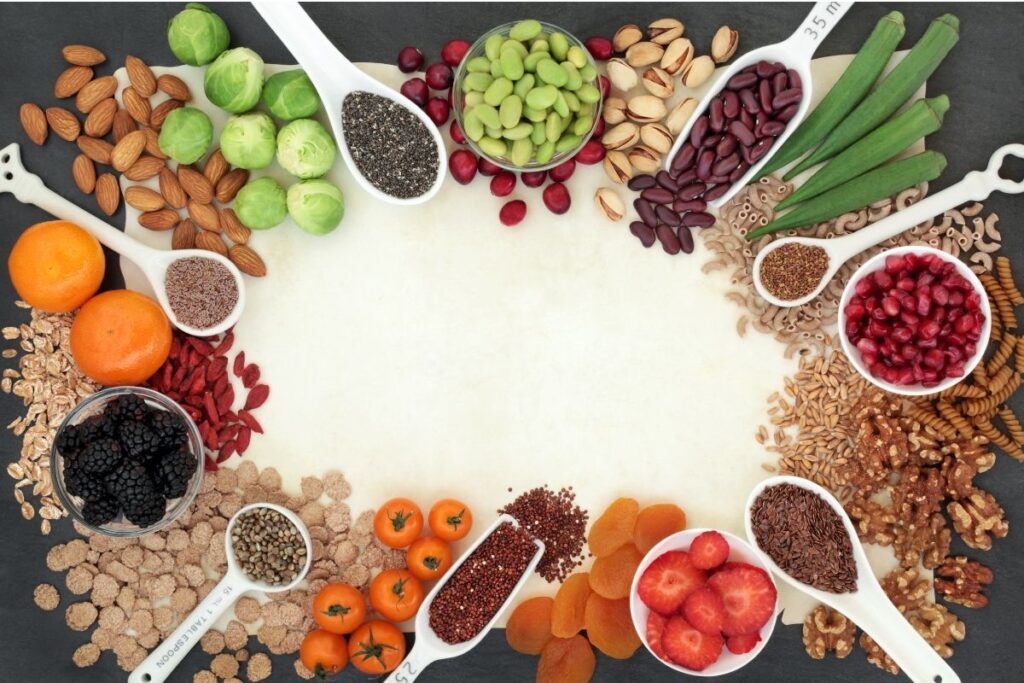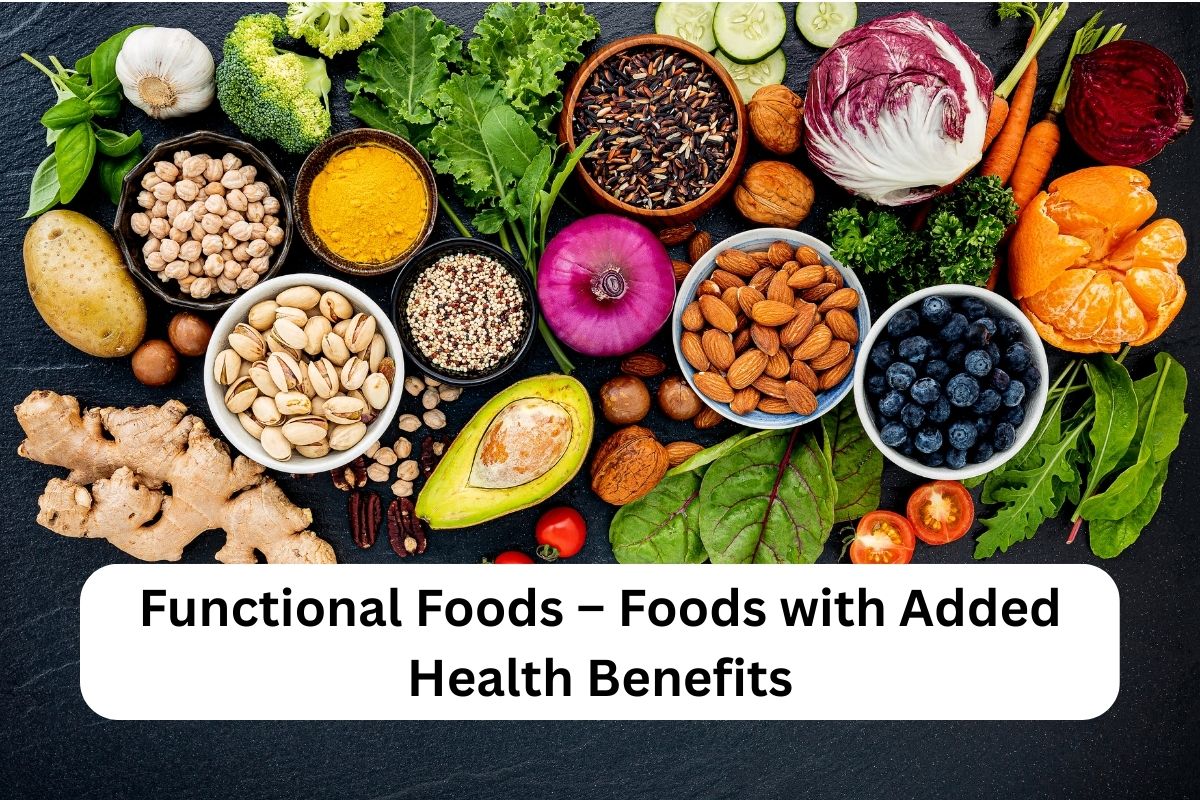Food today is more than just fuel—it’s a source of healing, energy, and balance. As people become more health-conscious, the demand for functional foods is skyrocketing. Unlike regular foods, functional foods provide added health benefits beyond basic nutrition. They may improve gut health, boost immunity, balance stress, or enhance energy levels.
From probiotic-rich yogurt to adaptogenic herbs like ashwagandha, and superfoods such as spirulina and chia seeds, these powerful foods are reshaping how we eat and think about wellness. In a world where stress, fatigue, and lifestyle diseases are common, functional foods offer a natural solution.
What Are Functional Foods?
Functional foods are foods or beverages that provide additional health benefits beyond their nutritional value. They may be naturally rich in bioactive compounds or fortified with ingredients that support well-being.
Examples include:
- Yogurt with probiotics for gut health
- Turmeric with curcumin for anti-inflammatory benefits
- Matcha green tea for energy and antioxidants
- Chia seeds for omega-3 fatty acids and fiber
In short, functional foods bridge the gap between nutrition and medicine.
Categories of Functional Foods
Functional foods generally fall into three main categories:
1. Probiotics: Foods for Gut Health

Probiotics are “good bacteria” that improve digestion and support a healthy microbiome. A strong gut microbiome is linked to better immunity, mood regulation, and reduced inflammation.
Examples: Yogurt, kefir, kimchi, miso, sauerkraut, and kombucha.
2. Adaptogens: Stress-Relieving Foods
Adaptogens are herbs and plants that help the body resist stress, restore balance, and increase energy. They have been used in Ayurvedic and Chinese medicine for centuries.
Examples: Ashwagandha, ginseng, holy basil (tulsi), rhodiola, and maca root.
3. Superfoods: Nutrient-Dense Powerhouses

Superfoods are foods packed with vitamins, minerals, antioxidants, and phytochemicals that promote overall health. They support energy, brain function, skin health, and immunity.
Examples: Spirulina, blueberries, turmeric, chia seeds, quinoa, acai berries, and matcha.
Benefits of Functional Foods
- Gut Health: Probiotics improve digestion, reduce bloating, and support immunity.
- Stress Relief: Adaptogens regulate cortisol and promote calmness.
- Energy & Vitality: Superfoods provide sustained energy and fight fatigue.
- Anti-Inflammatory Effects: Ingredients like turmeric and ginger reduce inflammation.
- Better Immunity: Antioxidants protect against illness and strengthen immune defenses.
- Holistic Wellness: Functional foods combine ancient wisdom with modern nutrition.
Table: Types of Functional Foods and Their Benefits
| Category | Examples | Key Health Benefits | Best For |
|---|---|---|---|
| Probiotics | Yogurt, kefir, kimchi, kombucha | Improves digestion, boosts immunity | Gut health, overall wellness |
| Adaptogens | Ashwagandha, ginseng, holy basil | Reduces stress, balances hormones | Stress relief, mental clarity |
| Superfoods | Spirulina, chia seeds, blueberries | Rich in antioxidants & nutrients | Energy, skin, brain health |
| Anti-inflammatory Foods | Turmeric, ginger, green tea | Reduces inflammation, supports recovery | Athletes, chronic conditions |
| Omega-Rich Foods | Flaxseeds, hemp seeds, walnuts | Supports heart & brain health | Cardiovascular and mental wellness |
Examples of Functional Foods in Daily Life
- Starting the day with green tea or matcha instead of coffee for sustained energy.
- Adding chia seeds to smoothies for fiber and omega-3.
- Eating fermented foods like kimchi with meals for better digestion.
- Using turmeric lattes (golden milk) as a natural anti-inflammatory drink.
- Taking ashwagandha tea for stress management.
These small daily choices can make a big difference in long-term health.
Functional Foods & Lifestyle Trends
The popularity of functional foods is tied to major lifestyle shifts:
- Holistic wellness: People prefer natural solutions to stress, fatigue, and anxiety.
- Preventive health: Functional foods act as natural shields against lifestyle diseases.
- Convenience: Ready-to-drink kombucha, protein bars, and fortified snacks make functional eating easy.
- Clean eating: Consumers are looking for simple, natural, minimally processed options.
The Future of Functional Foods
The global functional food market is expected to grow rapidly as more people seek natural, health-enhancing solutions. We can expect:
- Personalized nutrition: Functional foods tailored to individual needs (gut health, stress relief, energy).
- Fortified everyday foods: Bread, pasta, and snacks enriched with probiotics, adaptogens, or superfoods.
- Sustainable sources: Plant-based, eco-friendly functional ingredients like algae and hemp.
- Integration into restaurants: Menus featuring wellness-driven dishes like adaptogen lattes, superfood bowls, and probiotic-rich side dishes.
Functional foods are no longer just a trend—they’re the future of eating for health and vitality.
Functional foods are transforming the way we view nutrition. By adding probiotics, adaptogens, and superfoods to our diets, we can go beyond basic nourishment and actively support gut health, immunity, energy, and stress management.
From ancient herbs to modern-day superfoods, these innovations blend tradition with science, offering a natural path toward wellness. If you’re seeking balance and vitality in your life, functional foods may be the key.
The future of food isn’t just about taste—it’s about health, healing, and harmony.
FAQs
1. What makes a food “functional”?
A functional food offers health benefits beyond basic nutrition, such as improving digestion, immunity, or stress response.
2. Are functional foods safe for everyone?
Most functional foods are safe, but people with allergies, chronic conditions, or those on medication should consult a doctor before adding new ones.
3. What are the best probiotic-rich foods?
Yogurt, kefir, sauerkraut, kimchi, miso, and kombucha are excellent sources of probiotics.
4. Can functional foods replace supplements?
In some cases, yes. However, supplements may still be needed if you have specific nutrient deficiencies.
5. How can I add functional foods to my diet?
Start small—add chia seeds to smoothies, drink green tea daily, or include fermented foods with meals.
